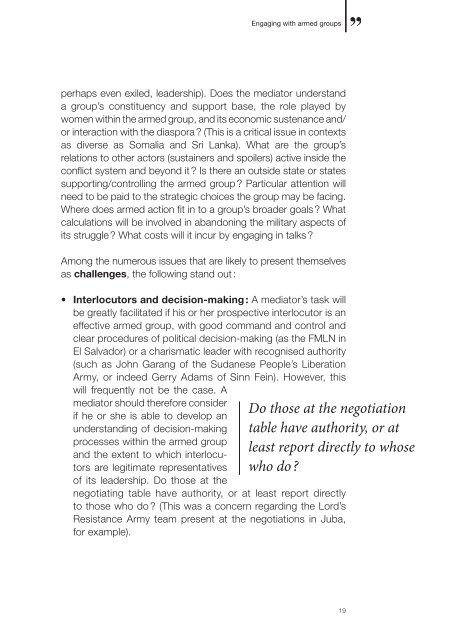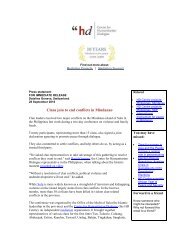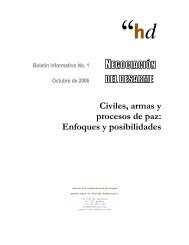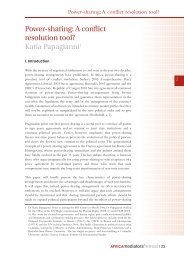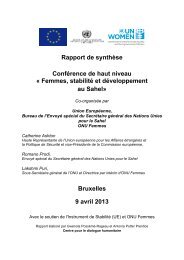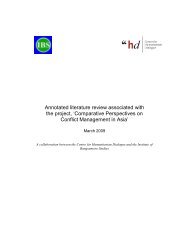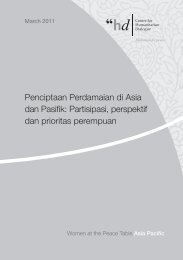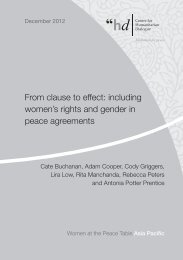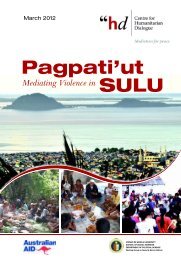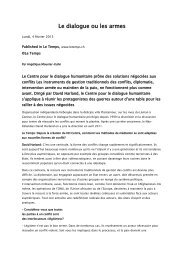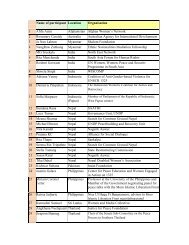Engaging with armed groups - Centre for Humanitarian Dialogue
Engaging with armed groups - Centre for Humanitarian Dialogue
Engaging with armed groups - Centre for Humanitarian Dialogue
- No tags were found...
Create successful ePaper yourself
Turn your PDF publications into a flip-book with our unique Google optimized e-Paper software.
<strong>Engaging</strong> <strong>with</strong> <strong>armed</strong> <strong>groups</strong>perhaps even exiled, leadership). Does the mediator understanda group’s constituency and support base, the role played bywomen <strong>with</strong>in the <strong>armed</strong> group, and its economic sustenance and/or interaction <strong>with</strong> the diaspora ? (This is a critical issue in contextsas diverse as Somalia and Sri Lanka). What are the group’srelations to other actors (sustainers and spoilers) active inside theconflict system and beyond it ? Is there an outside state or statessupporting/controlling the <strong>armed</strong> group ? Particular attention willneed to be paid to the strategic choices the group may be facing.Where does <strong>armed</strong> action fit in to a group’s broader goals ? Whatcalculations will be involved in abandoning the military aspects ofits struggle ? What costs will it incur by engaging in talks ?Among the numerous issues that are likely to present themselvesas challenges, the following stand out :• Interlocutors and decision-making : A mediator’s task willbe greatly facilitated if his or her prospective interlocutor is aneffective <strong>armed</strong> group, <strong>with</strong> good command and control andclear procedures of political decision-making (as the FMLN inEl Salvador) or a charismatic leader <strong>with</strong> recognised authority(such as John Garang of the Sudanese People’s LiberationArmy, or indeed Gerry Adams of Sinn Fein). However, thiswill frequently not be the case. Amediator should there<strong>for</strong>e considerif he or she is able to develop anunderstanding of decision-makingprocesses <strong>with</strong>in the <strong>armed</strong> groupand the extent to which interlocutorsare legitimate representativesof its leadership. Do those at theDo those at the negotiationtable have authority, or atleast report directly to whosewho do ?negotiating table have authority, or at least report directlyto those who do ? (This was a concern regarding the Lord’sResistance Army team present at the negotiations in Juba,<strong>for</strong> example).19


